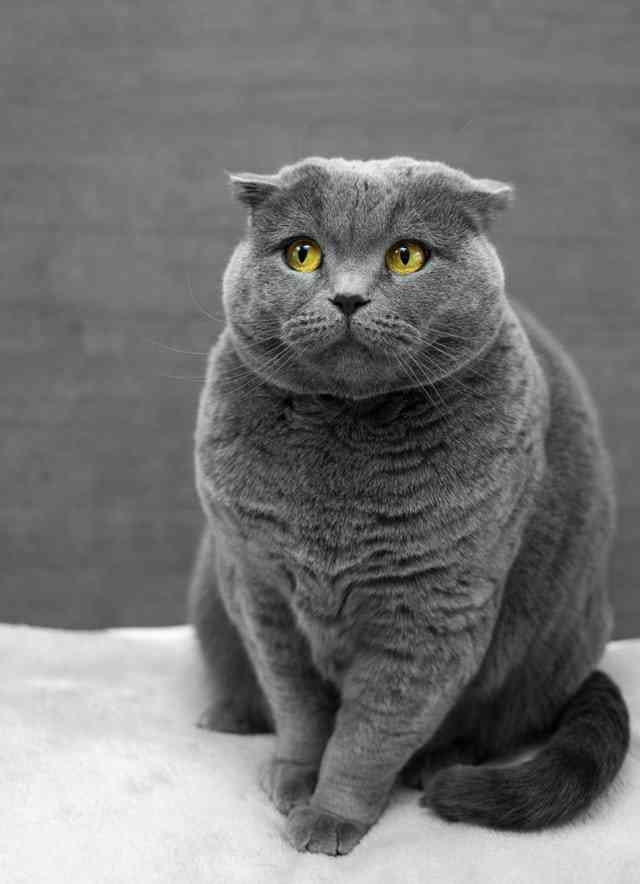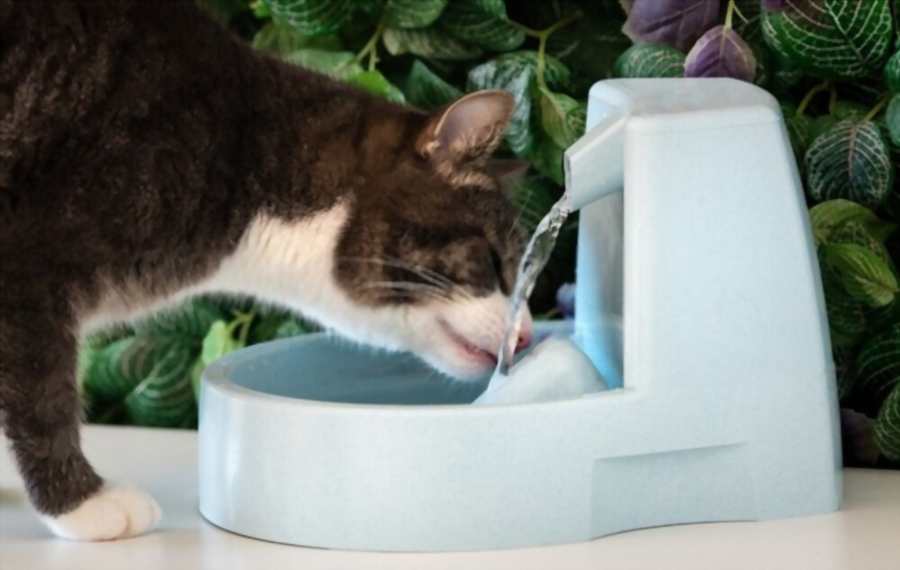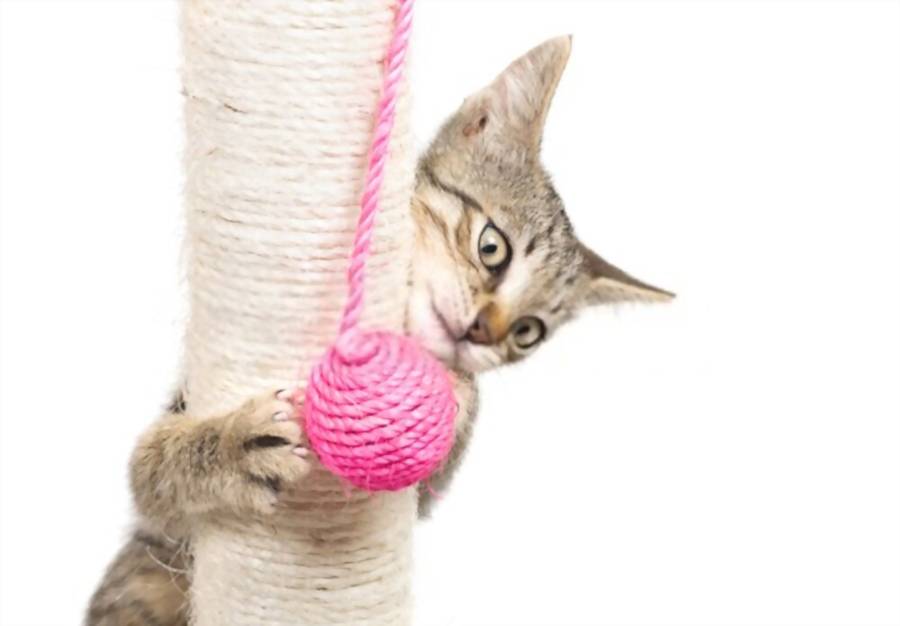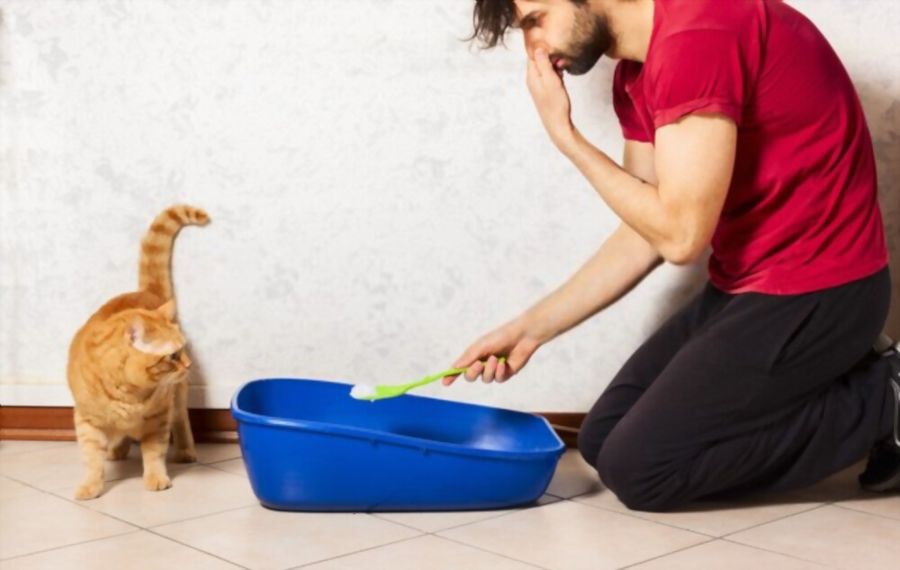For all cat owners, cat urine tends to be noticeable, more pungent, and unmistakably foul. So, why does cat pee smell so bad?
The distinct cat pee odor has a lot to do with their physiological adaptation, behavior, gender, and urinary system health. Fortunately, you can take steps to overcome the bad smell.
Background Info
Cats are physiologically adapted to desert-like climates. They’ve evolved to eke out and retain a lot more water from urine than other mammals. As an extreme adaptation, cat’s kidneys have long loops of Henle. This adaptation allows cats to produce hyper-concentrated urine, without harming their health.
Studies have shown that the osmolarity of domesticated cats’ urine can be as much as 3100. For comparison, the typical osmolarity of human urine is about 1400. The concentrations of uric acid, metabolic waste, urea, creatine, and electrolytes such as sodium chloride are substantially higher in cats’ urine than in those of many other mammals, including dogs.
In the wild, this adaptation helped cats remain hydrated and healthy even with scarce water availability. In our homes, however, it results in cat urine that is unbearable to live with.
Behavioral elements also play a part in making cat urine smell extremely foul. Cats tend to mark their territories by spraying their urine. Such behavior means they will urinate all over your house, especially in hidden spots.
Unfortunately for us, when cat pee is in a hidden corner, the urine will stay unnoticed long enough that it starts to decompose. After a while, bacteria, such as ureolytic bacteria will begin to decompose the urea in the urine.
The decomposing urea in the urine gives off a stale, ammonia-like odor. Left uncleaned, the urea will decompose even more and give off mercaptans (made of sulfur, carbon, and hydrogen), the compounds that give skunks their awful, pungent smell. That’s why mercaptans is added to natural gas to make it easier for us to notice a leak.
Click here to learn more about why cat pee smells like ammonia.
Why Does Cat Pee Smell So Bad (Especially For Male Cats)?

Aside from urea, it is essential to note that male cats will produce urine that smells worse than their female counterparts. Male cat urine has several steroids not found in female cat urine. Furthermore, intact male cat urine odor tends to get worse over time due to the presence of felinine in their urine.
Felinine is a pheromone that male cats use to mark their territory. After urinating, felinine does smell a little bit. However, as this compound breaks down over time, its smell gets worse. The smell tends to stick around much longer, which is crucial for wild cats to mark territory.
Unfortunately, male cat pee becomes a stubborn stain in domestic environments that does not clean easily with typical household cleaners. You need to use one of these enzyme cleaners that breaks down amino acid compounds found in cat urine.
Why Cat Urine Smells Worse Than Usual
While cat urine never smells like rose petals, if you notice strong smelling cat urine lurking in your house, you need to investigate. This is especially important when the foul smelling cat urine is more pungent than usual, indicating that something has changed.
#1. Dehydration And Diet
When your cat’s urine smells worse than usual, chances are a change of diet or dehydration is causing the issue. For instance, if you change your cat’s food to store-bought food with higher protein concentration, the amount of urea in the cat’s urine will rise as well. Inadvertently, the increase in urea will increase the amount of ammonia produced when the urea breaks down.
On the other hand, if your cat reduces his or her fluid intake, he or she may suffer from dehydration. The dehydration will increase the concentration of urea in the little urine he or she passes. Generally speaking, this causes your cat’s urine to acquire a strong smell almost overnight.
So, why does my cat’s pee smell so strong all of a sudden? There is a high likelihood they have reduced their fluid intake. As such, track their water intake.
It is important to note that cat urine that’s thick, sticky, and sweet-smelling could be an early sign of diabetes. Urine that has a high concentration of sugar tends to have a gummy texture.
#2. Urinary Tract Infection (UTI)
UTI is a more serious cause of cat pee smell. Urinary infections cause cats to pass concentrated urine, which has a strong odor. Bacteria and stress can cause urinary infections—more on this below.
#3. Senior Cat Strong Urine Odor
As cats get older, the smell of their urine gets more potent and worse. The work of the kidneys is to filter waste products from the blood. Normally, the waste is transported from the kidneys to the bladder in urine until your cat pees.
However, as your cat ages, its kidney’s efficiency declines gradually. Consequently, their kidneys cannot work well to filter the urine, which causes their urine to smell worse than that of their younger counterparts.
Your cat may exhibit signs of poor kidney functionality or failing kidneys, like frequent urination or urinating outside the litter box.
#4. Intact Or Neutered/Spayed Cats
Pee from male cats that have not been neutered contains high levels of pheromones and testosterone. Pheromones are scent chemicals used by cats to communicate and interact with one another. By spraying around your home, your male cat effectively tells neighboring male cats to keep away and female cats that he is available.
#5. Sex Of The Cat
Expect male cats to have worse-smelling urine because of the high testosterone in their urine. It is also the reason you have probably read about spaying your female cat or neutering your male cat as a way of dealing with cat-urine odor in your home.
#6. Cat’s State of Mind
Your cat’s state of mind does affect the severity of its urine odor. When feeling vulnerable, cats give off pheromones as a means of endearing themselves (sort of indicating they are lovely animals and should be protected). Sometimes the pheromones are used to communicate fear, greetings, or are emitted by the mother cat to reassure her kittens’ safety.
On this basis, humans have developed synthetic forms of pheromones like the Comfort Zone with Feliway Diffuser, whose primary work is to help control a cat’s scratching and marking behavior. The product’s spray vapor reduces this urine-marking behavior in your cat by reassuring it that the environment is friendly and safe.
#7. Length of Cat Hair And Smelly Cat Urine
Experts reckon that the felinine in cats comes from a dietary amino acid called cysteine. The main work of cysteine is the growth of cat hair. That is to say, if cysteine is not being utilized in a cat’s body in the production of felinine, then it is aiding in the growth of cat fur.
A study conducted on a random group of 83 intact male cats in the Netherlands concluded that cat breeds with short hair had smellier pee than cats with long hair, apart from the Persian breed. The long-haired breed of cats predominantly used cysteine to grow hair and consequently had less felinine in their pee, making it less stinky.
Comparatively, short-haired cat breeds directed much of the cysteine in felinine production. At the same time, the high amounts of felinine in their pee make it stink more.
#8. Unchanged Litter
When you get a sudden cat pee smell that is stronger than usual, it might just be that you’ve not cleaned the cat litter as needed. Understandably, we live busy lives these days, and it is easy to forget to perform some daily chores, including cleaning the litter box.
If you’ve not cleaned the cat litter box in a while, the urine will percolate deeper into the litter and concentrate at the bottom. So, if the cat’s pee smells so bad around the litter box, cleaning the litter box might just solve the problem.
If you’re faced with a busy schedule or you’re simply looking for a better way to manage your cat liter, you could invest in a self-cleaning litter box. With this PetSafe Litter Box, you don’t have to worry about the litter box giving off the pungent smell of our cat’s urine.
You Might Want To Learn How To Stop Your Cat From Peeing On Your Bed
What Can I Give My Cat For Strong Urine?
In healthy cats, a strong urine odor might occur due to dehydration. Aside from physiologically adapting to consume less water (as discussed above), cats also have behavioral adaptations that reduce their water intake.
By nature, cats have a lower thirst drive. Consequently, they tend to drink less water and drink it infrequently, increasing the odds of dehydration occurring.
In the wild, felines obtain the vast majority of their water from their food.
Unfortunately, the popular commercial cat food we feed our domesticated cats tends to be dry or contain insufficient liquid to keep the cat hydrated. With decreased dietary liquid intake, cats will extract more water from their urine, which, in turn, concentrates the urea, salts, electrolytes, and other materials.
Dealing With Dehydration In Cats
To counter hydration caused by insufficient water intake, consider the following:
#1. Encourage Your Cat To Drink More Water

While cats have a low thirst drive, you can entice them to drink more water. There are several ways you can entice your cats to drink water. One of the most effective ways to encourage cats to drink water is to provide fresh water. Your cats are more likely to drink water when it is fresh. As such, clean and refill the water bowl every day.
You could also give flavored water a try. Adding salt-free chicken broth or tuna juice to the water will tempt your cat to drink it more frequently. Consequently, your pet might end up drinking more water.
Finally, you could use a water feature such as this untippable cat water fountain made of ceramic to entice your cat to drink more water. A fountain with flowing and falling water will pique your cat’s curiosity. They will take an interest in the fountain and drink water more frequently, thereby drinking sufficient water to stay hydrated. Read more about cat water fountains in our guide.
#2. Change Your Cat’s Diet
A change of diet might also do well for your cat. It might be as simple as switching to or supplementing with canned diets. Canned cat food tends to have a higher water content compared to dried cat food. Giving your cats canned foods will increase their water intake and reduce dehydration.
If the cat had previous urinary ailments, your pet might benefit more from taking quality urinary diets, such as these urinary diets on Amazon. Urinary diets are therapeutic diets that balance the necessary minerals such as calcium, magnesium, and phosphorus to keep your cat healthy without overwhelming its urinary tract.
Other urinary diets will have a slightly acidic pH to lower the concentration of salts. As such, urinary diets are less likely to cause dreaded urinary stones or crystals.
That being said, consult your cat’s vet before you supplement their diets with urinary diets or switch them to a urinary diet completely.
Dealing With Feline Urinary Tract Diseases Causing Foul Smell In Urine
If you help your cat increase their water intake and that does not help dilute the strong smell of their urine, you should investigate for possible Feline Urinary Tract Disease (FLUTD). Feline Urinary Tract Disease is a condition that affects the urethra and the bladder.
FLUTD is a crucial consideration when dealing with a male, diabetic, or overweight cat. Such cats are prone to developing urinary health issues.
Other factors that could cause FLUTD are environmental and emotional stresses, abrupt changes to the cat’s daily routine, using the litter box exclusively, and having many cats. While a cat suffering from FLUTD will urinate foul-smelling pee, there are profound implications that come with this ailment.
Look out for the behavioral signs a cat displays to indicate a possible ailment or health issue. For instance, a cat with any urinary illness will:
- Walk stiffly,
- Assume a hunched or tensed position while they sit down,
- Display signs of distress or pain,
- Crying excessively,
- Straining to urinate,
- Appetite loss,
- Lethargy,
- Lick their genitals excessively,
- Excessive urination,
- Visiting their litter box without urinating,
- Urinating in random spots,
- Blood in urine, and
- Fever
Combined with the pungent smell of their urine, these are signs that you need to take seriously.
Stress-Induced FLUTD That Causes Strong Urine Smell
Although it might not seem so, cats are susceptible to environmental stressors. Any change in their routine, environment, or the addition of another cat, a roommate, or even a newborn baby can alter their balance and trigger stress. In some cases, these environmental stresses might trigger internal stresses, which manifest themselves in the form of FLUTD
Left untreated, mild cases of stress-induced FLUTD could develop into a more severe condition such as urethral obstruction, where the urethra blocks partly or wholly, which is life-threatening.
With the above in mind, reducing the risk of your cat developing internalized stress that could ultimately lead to FLUTD is crucial.
Prevention And Remedies For Stress-Induced FLUTD And The Resulting Foul Smelling Pee
An excellent place to start is to keep the litter box clean. Many cats will not use soiled litter boxes. Having your cat’s litter box dirty will induce stress, which might lead to FLUTD occurring. In the same light, do not switch the litter box brand.
If you are replacing their litter box, buy the same litter box to keep their environment familiar. This is part of maintaining their routine.

Finally, provide your cat with space he/she can spend alone. Most cats need some alone time. With this in mind, create an area that has all of your cat’s necessities, including food, water, toys, litter box, perch, and a scratching post where they can go to spend some time alone.
#1. Eliminate Environmental Stressors
Environmental stressors come in many forms. You need to figure out what stresses your cat and eliminate it from your environment.
#2. Create A Cat-Friendly Environment
While staying indoors provides cats with the safest environment, your home isn’t naturally ideal for your feline friend. In typical domestic environments, cats get bored quickly, leaving them susceptible to stress. To counter this, enrich your home with items that challenge and stimulates their brains.
Doing this is especially important for cats that do not have access to the outdoors. Otherwise, your cat will fill the void left by a lack of outdoor exploring, hunting, and socializing with other cats with oversleeping and excessive eating. Such a lifestyle can cause your cat to develop sedentary lifestyle diseases, including FLUTD.
With the above in mind, install elevated perches such as cat trees, tall scratching posts, litter boxes or trays, warm cat beds, and provide secluded spaces for your cats to enjoy some alone times.
As for toys, purchase moving prey toys covered in feather or fur-like material. You could also spray synthetic cat pheromones around your home, which help the cat relax. A window to the outside will also help your cat relax.
What Causes UTI In Cats And Home Remedies Urinary Tract Infection-Caused FLUTD
CAUTION!! You should only try home-based remedies for UTIs when the symptoms are mild. When your cat displays severe symptoms, you should take your pet to your veterinarian for proper and comprehensive treatment. Home remedies are not appropriate for cats in pain or unable to pass urine.
Urinary tract infections occur when bacteria infect the urinary tract and bladder. In most cases, bacterial infections are caused by poor hygiene or an abnormal pH in the cat’s urine, which leaves the urinary tract susceptible to bacterial infections.
Other causes of UTI include feline immunodeficiency virus (FIV), tumors, and injuries. However, it is more common for bladder stones to cause UTIs. Luckily, there are numerous natural ways to dissolve bladder stones in cats, as seen below.
Natural Ways To Dissolve Bladder Stones In Cats And Dilute Urine Concentration
#1. Cranberries
Cat urinary crystals home remedy works pretty much the same as it does on humans. We use cranberries to treat UTIs by lowering the pH of urine, which is the same for cats. Crucially, using cranberries can help prevent cat UTIs. However, this home remedy option is only viable when the cat’s urine is too alkaline.
As such, test the acidity of your cat’s urine (using this urine pH test kit) before choosing this treatment option. Moreover, avoid giving your cat cranberry juices, as they are too sugary. Instead, use cranberry supplements, capsules, or powder.
#2. Juniper Berry
Juniper is a herb derived from coniferous plants. The plant’s seeds have been used for over 200 years in Europe as a medical herb to treat gastrointestinal and urinary infections.
Juniper berry for cats UTI treatment works by fighting any infection in the kidney and/or urinary tract. Additionally, the herb has powerful anti-inflammatory properties that help soothe the kidneys and all other parts affected by the infection.
Finally, the berries are known to improve the rate at which the kidneys filter out metabolic waste. As such, the kidneys are capable of working far more efficiently, thereby producing more urine. This will not only reduce the foul smelling cat urine but, more importantly, protect your cat from UTIs. You can purchase this juniper berry supplement from Amazon for your cat.
#3. Apple Cider Vinegar
Another cat urinary blockage home remedy is to give your cat apple cider vinegar. Like cranberries, apple cider vinegar lowers the pH of the cat’s urine. As such, you need to test the urine for excessive alkalinity with a home test kit first.
Unfortunately, cat UTI home remedy apple cider vinegar can be too bitter for your cat to take. If that is the case, mix the vinegar with fish, beef, or chicken broth, making sure the broth does not contain onions to avoid onion-poisoning. Onions in any form can break down your cat’s red blood cells, causing anaemia.
#4. Marshmallow Root
Marshmallow root is one of the staple crystals in cat urine home remedies. Studies have shown marshmallow root can reduce inflammation, kill bacteria, and even strengthen the bladder lining. Moreover, it acts as a diuretic – a substance that encourages your cat to pass more urine, which in turn helps to flush your cat’s kidneys.
Frequent urination is essential in reducing the concentration of metabolic waste in the kidneys and urine. Naturally, urinating frequently will dilute the urine, thereby negating the foul smell of cat urine.
Finally, parsley leaves increase thirst. Consequently, your cats will naturally drink more water, which will go a long way in clearing the UTI and negating the foul smell of urine.
#5. Bone Broth
One of the best homemade cat foods for bladder stones is bone broth. Treating UTIs and getting rid of the associated foul smell in their urine entails keeping your cat hydrated. Tasty bone broth will encourage your feline friend to take in more fluids, which will reduce the buildup of metabolic waste in the kidneys and urinary tract.
Additionally, your cat will benefit from a generous intake of crucial minerals and nutrients. Bone broth contains amino acids such as arginine and glycine, which have anti-inflammatory properties.
#6. Parsley Leaves
Parsley leaves help your cat heal from UTIs in three ways. First and foremost, it has antiseptic properties, which help to protect the urinary tract from bacteria. Secondly, parsley is a natural diuretic – it causes your cat to urinate more frequently.
#7. Chondroitin And Glucosamine
Typically, these two supplements are used to treat arthritis joint pain. However, they do improve FLUTD. Glucosamine act as an anti-inflammatory compound and helps rebuild the bladder walls. On the other hand, Chondroitin prevents the breakdown of the bladder wall by preventing this compound from breaking away.
These compounds combine to restore the health of your cat’s bladder. Significantly, it reduces the effects of damage caused by bacteria.
#8. Uva Ursi
Uva ursi helps treat cat UTIs by taking advantage of its antibacterial, antiseptic, and diuretic properties.
#9. Stinging Nettle
Humans have used nettle as a natural diuretic for a long time. Similarly, your cat will benefit considerably from drinking nettle soup. It will increase their urination frequency, which helps flush their kidneys.
Keep in mind that if these home remedies do not effect cat urinary tract infection recovery, you should visit the vet.
Conclusion
As discussed above, when your cat’s urine smells terrible, increasing its hydration will almost always negate the smell. It is a no-brainer to take steps to increase your cat’s fluid intake. Additionally, give your cat supplements that will improve the health of its urinary system.

